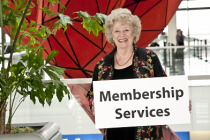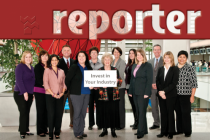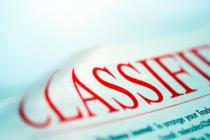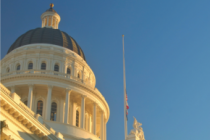Capitol Update
By Chris Wysocki
SUBLEASING BILL RESCHEDULED FOR JUNE 15 COMMITTEE HEARING
The Senate Judiciary Committee was set to hear AB 861 (Bennett), the harmful subleasing bill, yesterday; however, due to mounting concerns raised by both WMA and the California Mobilehome Parkowners Alliance (CMPA), the bill has since been rescheduled and will be heard on Tuesday, June 15.
RENT CONTROL, WATER SUBMETER BILLS REFERRED TO SENATE JUDICIARY COMMITTEE
WMA staff continues to work collaboratively with the California Mobilehome Parkowners Alliance (CMPA) and lobby against the rent control bill, AB 978 (Quirk-Silva) and AB 1061 (Lee), the water submetering measure. Both bills were referred to the Senate Judiciary Committee but have not yet been scheduled for a formal hearing.
WMA and CMPA continue their joint lobbying efforts to defeat AB 1061 as currently drafted. Both groups maintain that the bill’s attempt to apply water policy governing apartments to manufactured housing communities fails to take several distinctions into account.
For instance, manufactured housing communities are responsible for maintaining water systems for each space in mobilehome parks beyond the master-meter connection provided by the local governing water agency. The costs associated with maintaining mobilehome park water systems are significantly higher than for apartment buildings. As currently drafted, AB 1061 would make it virtually impossible for parkowners to recoup the costs related to water infrastructure. WMA staff continues to engage in discussions with the author and Judiciary Committee staff and members raising core areas of concern.
AB 71 (LUZ RIVAS) FAILS TO ADVANCE
AB 71 (Luz Rivas) failed to gather the votes needed to pass the Assembly floor last week and was subsequently sent to the Assembly inactive file. Earlier this year, WMA joined a coalition led by the California Taxpayers Association in opposition to AB 71, which increased taxes to create the Bring California Home Act to address homeless funding.
WMA JOINS COALITION URGING WILDFIRE MITIGATION FUNDING IN STATE BUDGET
WMA signed onto a support letter by the Stronger California Coalition encouraging Governor Newsom to allocate funding for wildfire preparedness and emergency response as part of the 2021-2022 state budget.
WMA is proud to be part of the Stronger California Coalition. This stakeholder group was formed to address the availability and affordability of homeowner’s insurance rates and coverage in wildfire-prone areas throughout the state.
To view the letter and learn more about Stronger California, please click here: https://strongerca.com/budget-framework-support/
GOVERNOR ANNOUNCES STATE OF EMERGENCY TO CONTINUE AFTER JUNE 15
Governor Newsom recently announced that the state of emergency order would not be lifted anytime soon despite the anticipated June 15 reopening of the state. The executive order grants the governor additional emergency powers during a declared state of emergency. The administration has long been criticized, and several Republican lawmakers have legally challenged the governor’s authority to issue orders under the declared state of emergency.
Please click here to read an Associated Press article:
CAL/OSHA COVID-19 PREVENTION EMERGENCY TEMPORARY STANDARDS
The revised emergency standards are expected to go into effect no
later than June 15 if approved by the Office of Administrative
Law in the next 10 calendar days. Some provisions go into effect
starting on July 31, 2021.
The
revised standards are the first update to Cal/OSHA’s
temporary COVID-19 prevention requirements adopted in November
2020. The Board may further refine the regulations in the
coming weeks to take into account changes in
circumstances, especially as related to the availability of
vaccines and low case rates across the state. The standards apply
to most workers in California not covered by Cal/OSHA’s Aerosol
Transmissible Diseases standard. Notable
revisions include:
-
Face Coverings:
- Indoors, fully vaccinated workers without COVID-19 symptoms do not need to wear face coverings in a room where everyone else is fully vaccinated and not showing symptoms. However, where there is a mixture of vaccinated and unvaccinated persons in a room, all workers will continue to be required to wear a face covering.
- Outdoors, fully vaccinated workers without symptoms do not need to wear face coverings. However, outdoor workers who are not fully vaccinated must continue to wear a face covering when they are less than six feet away from another person.
- Physical Distancing: When the revised standards take effect, employers can eliminate physical distancing and partitions/barriers for employees working indoors and at outdoor mega events if they provide respirators, such as N95s, to unvaccinated employees for voluntary use. After July 31, physical distancing and barriers are no longer required (except during outbreaks), but employers must provide all unvaccinated employees with N95s for voluntary use.
-
Prevention Program: Employers are still required to maintain a written COVID-19 Prevention Program but there are some key changes to requirements:
- Employers must review the California Department of Public Health’s Interim guidance for Ventilation, Filtration, and Air Quality in Indoor Environments.
- COVID-19 prevention training must now include information on how the vaccine is effective at preventing COVID-19 and protecting against both transmission and serious illness or death.
- Exclusion from the Workplace: Fully vaccinated workers who do not have COVID-19 symptoms no longer need to be excluded from the workplace after a close contact.
- Special Protections for Housing and Transportation: Special COVID-19 prevention measures that apply to employer-provided housing and transportation no longer apply if all occupants are fully vaccinated.
HOUSE OF ORIGIN DEADLINE HAS COME AND GONE
Last week was the deadline for bills to pass out their House of Origin. The Senate passed 549 bills to the Assembly, and the Assembly passed 790 bills to the Senate. It is interesting to note that only one bill failed to pass in the State Senate and five bills failed in the State Assembly.
To view the status of bills of interest for WMA, please visit (https://www.wma.org/bills-interest).
Chris Wysocki is WMA’s State Legislative Advocate. He can be reached at chris@wma.org.






